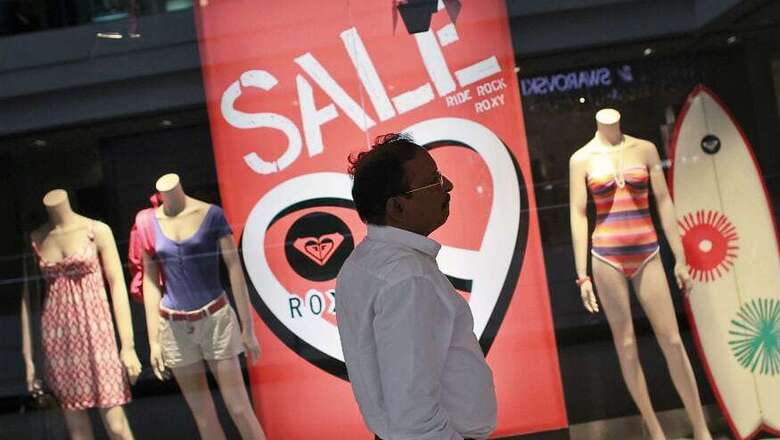
views
New Delhi: With plans to open Indian single-brand retail market for foreign players, the Cabinet in its meeting on Wednesday approved 100% foreign direct investment (FDI) in the sector.
The Cabinet decided to allow single-brand retail trading entity to boost the domestic market, making it mandatory to source 30 percent goods from India.
Here’s a look at what the policy change means and how it will affect the regular India consumer:What the Cabinet Decision Means?
The Cabinet has brought about a change in the FDI policy. The existing policy on single brand retail trading (SBRT) allows foreign players to have 49 percent stake under automatic route, and FDI beyond 49 per cent and up to 100 per cent through government approval route.
India recently jumped 30 places in the Ease of Doing Business list released by the World Bank.
“This will further open Indian markets. Specialty retail has seen a boom and is growing. Consumers are willing to experimenting with newer products and services, even if they are priced more. Hypermarkets and home stores are showing growth,” said Kishore Biyani, chief executive officer, Future Group.
It is also likely to benefit big foreign single-brand retailers such as IKEA. Traders's union have opposed the move, calling it a brutal move against small businesses.What are automatic and government approval routes?
The automatic route is a relatively less restricted regulation. Under the automatic route, the foreign investor or the Indian company does not require any approval from the Reserve Bank or Government of India for the investment. This route is permissible in all sectors and activities specified under the consolidated FDI policy.
The government route, on the other hand, requires the foreign investor to obtain prior approval of the Government of India agencies or bodies specified.
Proposals for foreign investment under approval route as laid down in the FDI policy are considered by Cabinet Committee on Economic Affairs or Cabinet Committee on Securities. Alternatively, the Department of Economic Affairs (DEA) or Department of Industrial Policy & Promotion also assist the above approving agencies.
“The automatic route enhances open market economics. This means that the company is free to choose its options. The decision will encourage entry of foreign players in the market. Automatic route is a way of instilling confidence in the market,” said Sanjay Grover, Partner, EY, a consultancy.What are single brand and multi brand retail businesses?
Single-brand retail refers to a business that sells goods to individual customers and not other businesses and such goods are all sold under the same brand. Nike, for example, sets up stores in India in which the foreign parent of Nike (Nike Inc.) invests. Such stores can only sell Nike products under the 'single brand' route.
Multi-brand retail are businesses that sell goods to individual customers and such goods can carry several different brands. Walmart is an example of multi-brand retail, which stocks and sells goods from various brands.What does this mean for regular consumers?
“This will provide for more options for consumers thus raising competition. With foreign players coming in, Indian domestic retail sector has to ramp up its game,” said Nithin Chandra, partner, ATKearney.
Crudely, an average Indian consumer will have more brands to choose from.

















Comments
0 comment